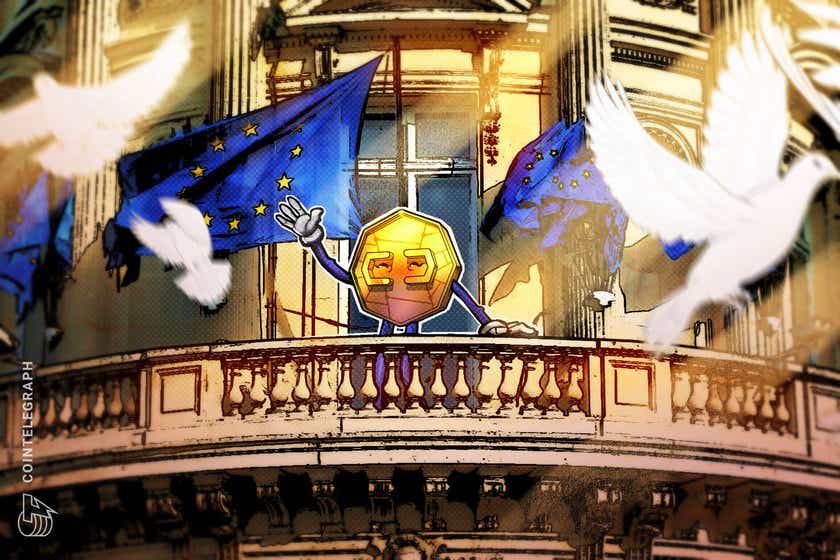For the cryptosphere, August was marked by the hotly debated announcements of world giants regarding the releases of international cryptocurrencies. The People’s Bank of China (PBoC) announced the imminent release of a national digital currency, Walmart began developing its own blockchain, Binance launching the Venus project, and Pavel Durov’s TON finally shared its release date.
The race was also joined by Facebook, which kept the development of its cryptocurrency a secret until the very last second. At the moment, the company is actively hiring specialists who can convince financial regulators to give the Libra coin the right to exist — and even launched a testnet of the future network.
Will the entities behind Libra (i.e., the Libra Association, which includes Facebook) be able to defeat the skepticism of regulators and the fear of world governments?
The dogs bark, but the caravan goes on
On June 18, Facebook co-founder and CEO Mark Zuckerberg announced the launch of the new cryptocurrency, Libra. The global media has had various reactions to the news. Governments and central banks of many countries perceive Libra as a real threat to the global financial system, while users expressed concerns about the recurrence of data leaks.
Related: Facebook’s Libra Coin: Initial Reactions Mixed
Despite attempts by world leaders to obstruct Zuckerberg, the latter is preparing to launch the system and even hired a group of lobbyists to find a compromise with the regulators. The specialists are thought to be needed to convince the United States and European financial regulators that the cryptocurrency will work within the framework of the current legislation and that any risk will be mitigated.
On Aug. 27, Cointelegraph reported that the group was joined by a former member of the U.S. Senate Committee on Homeland Security and Governmental Affairs. It was also reported that Facebook hired Susan Stoner Zuk, a former assistant to Republican Sen. Mike Crapo. Her role includes engaging with lawmakers regarding the project — and according to her, first of all, these will be the Republican senators.
Facebook has also thought through the technical implementation of the project. On Aug. 27, the Libra Association released its bug bounty program, promising a $10,000 reward for finding a security vulnerability.
The launch of the digital ecosystem is scheduled for 2020, but may be delayed due to global complicating factors. So, what is preventing Libra from launching?
Lack of permission from the U.S. government
Facebook’s Libra cannot be issued in the U.S. without the official permission of the authorities. The U.S. Treasury Department said the corporation is required to confirm high-quality security standards. Otherwise, it won’t be able to publicly offer its product.
The main threat is the risk of the new cryptocurrency being exploited for illegal use, as claimed by the U.S. Federal Reserve Board. Jerome Powell, its chairman, believes that Facebook should discuss the cryptocurrency project with regulators before publicly launching Libra, saying:
“Libra raises many serious concerns regarding privacy, money laundering, consumer protection and financial stability. These are concerns that should be thoroughly and publicly addressed before proceeding.”
Some members of the government appeared to be less soft on Libra. California Rep. Maxine Waters, a Democrat, who also chairs the U.S. House Financial Services Committee, advised IT corporations to stop cryptocurrency development until Congress and regulators examine all potential risks. According to the congresswoman, the new currency could seriously compete with the U.S. dollar.
Related: US Congress on Libra Overview: Trust, Privacy and Genocide Accusations
Before the official announcement of the project, the U.S. Senate requested corporation for an explanation on the tools that will be used to collect and process data from future users of the payment network.
However, key questions remained unanswered. The authorities are trying to understand whether the system will be truly decentralized and how it will fight against the shadow market. The general attitude of the U.S. authorities toward Zuckerberg’s new brainchild can be seen in an eloquent tweet by President Donald Trump, in which he wrote:
“Facebook Libra’s ‘virtual currency’ will have little standing or dependability. If Facebook and other companies want to become a bank, they must seek a new Banking Charter and become subject to all Banking Regulations, just like other Banks.”
David Marcus, the CEO of Libra’s native wallet, Calibra, and Mark Zuckerberg assured the authorities of the transparency of their intentions, arguing that all transactions would be pseudonymous, and that they would spend as much time as needed to meet all requirements and standards.
The intransigence of regulators
On Aug. 25, Cointelegraph reported that the U.S. regulators visited Switzerland, where Libra had registered its activities, to conduct a series of inspections. However, after the meetings, the regulators still had questions related to the legal status of the Facebook’s cryptocurrency. Waters said:
“My concerns remain with allowing a large tech company to create a privately controlled, alternative global currency.”
Moreover, the “Zuck Buck,” as Democratic Rep. Brad Sherman jokingly nicknamed Libra in his tweet on July 17, could be a red rag for terrorists and other criminals, writing that “Mark Zuckerberg is sending a friend request to oligarchs, drug dealers, human traffickers and terrorists” by launching Facebook’s Libra cryptocurrency.
U.S. Secretary of State Michael Pompeo shared Sherman’s concerns, adding that the development of anonymous transactions could reduce the level of security in the world, saying:
“We should use the same framework that we use to regulate all other electronic financial transactions today.”
It seems that to counteract this, Zuckerberg is actively trying to connect with regulators. He reportedly consulted with the Treasury, the Securities and Exchange Commission (aka the SEC), the Commodity Futures Trading Commission (commonly known as the CFTC) as well as Western Union executives.
In April, he discussed with Bank of England Governor Mark Carney and the U.S. Department of the Treasury over how the future payment system could be regulated. However, the result of the meetings is still unknown.
Pressure from other countries
Concerns about Libra’s growing influence have also been heard outside of the U.S. Several countries expressed their fears immediately following Libra’s announcement:
Russia:
“We will limit or prohibit the creation of such sites.”
The United Kingdom:
“The Bank of England approaches Libra with an open mind but not an open door.”
France:
“It is out of question that it [Libra] become a sovereign currency.”
India:
“Whatever it is, it would be a private cryptocurrency and that’s not something we have been comfortable with.”
More specific concerns were formulated by the South Korean authorities. The country’s Financial Services Commission said that the transition of 2.4 billion Facebook users to a new asset could cause capital outflows from developing economies.
Despite this, regulators did not propose specific measures to counter the threat of the monetary monopoly. However, the Chinese government has — and not only has it expressed its negative position, but is also apparently ready to take emergency countermeasures. On Aug. 10, the country’s central bank said it was ready to issue a national cryptocurrency.
Related: Chinese National Cryptocurrency Turns Out Not Being an Actual Crypto
In developing countries, which are precisely what Libra is oriented toward, the new cryptocurrency may spread quickly. But the consequences for these national economies may become difficult to predict. That is why governments may want tight control over the Libra Association.
Exit of key members and partners of the project
Project partners are also concerned over Facebook’s struggle with regulators. It seems no company has agreed so far to pay the $10 million to join the network. Meanwhile, some of them said they would make the final decision on joining the organization only after the principles of Libra’s work would become clearer.
Seven out of 27 companies have reportedly joined on the condition that they would not have to promote or use the Libra token, leaving the right to refuse if something goes wrong. In an interview with the Financial Times, one of the partners noted that:
“I think it’s going to be difficult for partners who want to be seen as in compliance [with their own regulators] to be out there supporting [Libra].”
Another supporter criticized the social media giant for its ill-conceived strategy, saying that:
“Some of those conversations [about regulation] should have taken place before the launch, to understand how regulators would think about it, so there wasn’t so much pushback.”
Facebook’s spoiled reputation
At a hearing before the House of Representatives Financial Services Committee earlier in July, lawmakers expressed doubts about the future security of Facebook’s cryptocurrency, as the company had previously been fined $5 billion for collecting, storing and misusing user data.
Facebook itself replied that user data won’t be shared between the new project and the existing social media network. At least, this is what was promised in the announcement released by Facebook, as Libra would function under the Libra Association and Facebook would be just one of the participants. Nevertheless, some members of the crypto community suggest that Libra will give Facebook a new tool for collecting user information.
It is difficult to avoid the numerous scandals related to Facebook’s inability to protect the privacy of users, which led to the fact that the social media giant assigned the project management to the Libra Association. As Marcus noted, if the company controlled the network, very few would want to “jump on it and make it theirs.”
Thus, Facebook is attempting to solve the problem of distrust by removing the burden of sole responsibility and instead distributing it among the members of the Association. This will make the network more credible, as Zuckerberg noted:
“It [the blockchain] is decentralized — this means that it is managed by many different organizations, and not one, which makes the system as a whole fairer.”
Will the Zuck Buck be given a chance?
Thus, it seems there are just two potential outcomes. Libra may lose out to the regulators, and as a result of which, Facebook will be forced to close the project. In this case, decentralized systems that do not require permission will receive a big impetus for development, since they will be the only real alternative that will be able to help avoid regulatory pressure.
In the second scenario, Libra will succeed in the free market, in which private tokens will compete with fiat currencies. In this case, each user will have to choose between functions such as fiat binding, decentralization, privacy, etc.
Regarding the likelihood of Libra being released in 2020, legal and financial experts unanimously stated that the project is most likely technically ready, while unresolved legal issues may interfere with its implementation in time. Christian Ellul, Director of E&S Group, said:
“From a technical point of view I would believe that the Libra team will be ready to launch by the date to which they committed — the stakes from a marketing and reputation point of view are too high for the deadline not to be met. From the legal point of view the story may be different. Different countries will undoubtedly treat Libra differently due to the very different legal regimes that exist — this could potentially pose a stumbling block to its success and its widespread adoption.”
Tom Debus, a managing partner at data service provider Integration Alpha, agreed that regulators may make life hard for Libra:
“I have a hard time believing that all of the regulatory aspects will be sorted during 2020 – this will take longer. However, with the necessary compromise and pivoting on scope and legal frameworks involved some initial features and services might be able to go live even though the full vision might not (yet) be implemented.”
However, a cryptocurrency from Facebook has every chance of finding widespread use, according to financial expert Benjamin Tsai, who is the president and managing partner at Wave Financial. He believes that:
”Libra was set up to be pan-sovereign. This was unfortunate, and hard for all the countries to get behind. If they started with issuing USD-Libra, JPY-Libra, EUR-Libra, and GBP-Libra first, then that would have cushioned the blow a bit. They can always decide to play with the exchange rate thereafter or just de-peg completely. […] The governments do understand that this will happen at some point, and the Libra Association needs to sell the idea that they can do a good job of executing on this digital currency plan.”
Eric Benz, CEO of the cryptocurrency exchange platform Changelly, thinks that:
“Libra poses a threat to the legacy financial institutions rather than to Bitcoin itself. Since Bitcoin is a cryptocurrency with a volatile nature, its price grows in value along with the increased global interest. Libra, on the other hand, plans to have a fixed price, thus it cannot be considered as a source of investment.”









